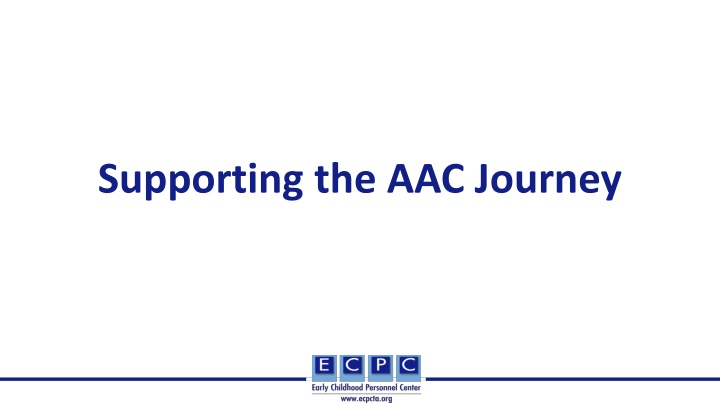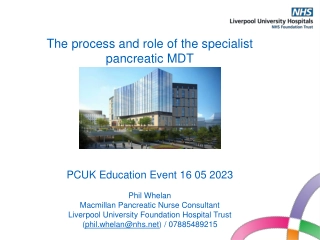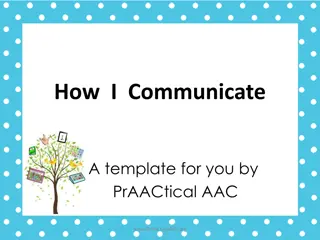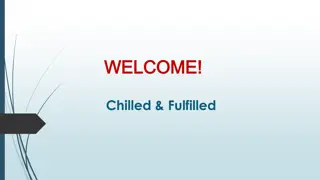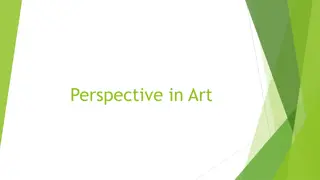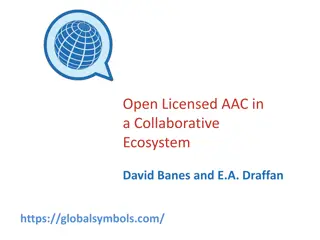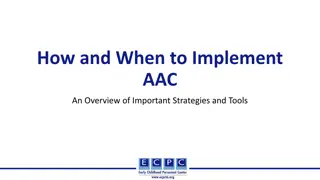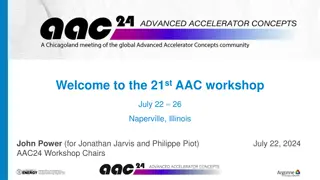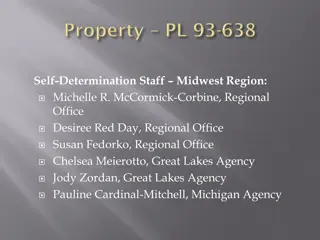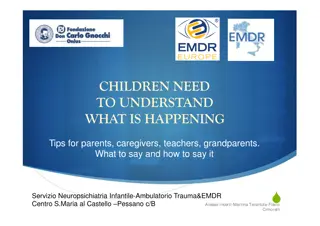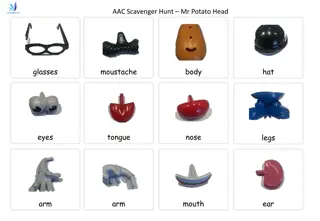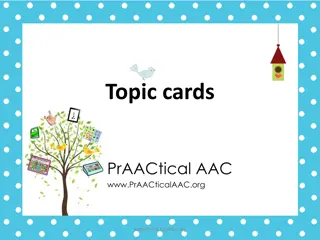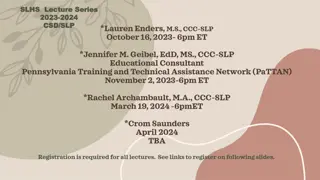Supporting the AAC Journey: A Specialist's Perspective
Although conventional communication may not be present, recognizing different signals is crucial in shaping functional communicative behaviors. Specialists play a vital role in enhancing language potential through AAC, impacting future language development. Using aided language modeling and fostering potential within the Zone of Proximal Development are key strategies. Flexibility in adapting AAC systems as per user needs is emphasized, akin to transitioning between tech platforms.
Download Presentation

Please find below an Image/Link to download the presentation.
The content on the website is provided AS IS for your information and personal use only. It may not be sold, licensed, or shared on other websites without obtaining consent from the author.If you encounter any issues during the download, it is possible that the publisher has removed the file from their server.
You are allowed to download the files provided on this website for personal or commercial use, subject to the condition that they are used lawfully. All files are the property of their respective owners.
The content on the website is provided AS IS for your information and personal use only. It may not be sold, licensed, or shared on other websites without obtaining consent from the author.
E N D
Presentation Transcript
Supporting the AAC Journey Although a child may not be communicating in conventional means, that does not mean they are not communicating. Be flexible there are different ways in which signals can be recognizable Our job and collective goal as specialists is to help shape those communicative behaviors into functional skills that are foundational to one s command over the infinite potential of language.
Supporting the AAC Journey We all use > one modality for communicating Think about lifelong transitions from the first day! The skills you re developing now impact skills available later in life. Ask: How do my efforts to support access, trials and success with AAC impact a child s future Have: a vision of where they are going in terms of AAC and language development.
Supporting the AAC Journey When a system is selected, and/or shows up THAT is a starting line not the finish. Use and promote aided language modeling! Humans don t just imitate or name objects, but use language to: influence others obtain information give information and engage in conversational give and take.
Supporting the AAC Journey Presuming potential = on the way to developing skill everyone has potential Evaluate Stimulability = skills not yet mastered but achievable with support Work within the Zone of Proximal Development = The space between (and including) independence and potential w/ support
Supporting the AAC Journey Decisions on the appropriate type of AAC may need to change as the user s abilities, environment, and/or needs change Decisions to change communication software or hardware have a similar, if not more profound, impact as you being required to change from iPhone to Android or vice versa. That frustration from Microsoft updates changing how you engage with the software is likely also present when we change a child s language system.
Disclaimer This is a product of the Early Childhood Personnel Center (ECPC) awarded to the University of Connecticut Center for Excellence in Developmental Disabilities and was made possible by Cooperative Agreement #H325B170008 which is funded by the U.S. Department of Education, Office of Special Education Programs. However, those contents do not necessarily represent the policy of the Department of Education, and you should not assume endorsement by the Federal Government.
